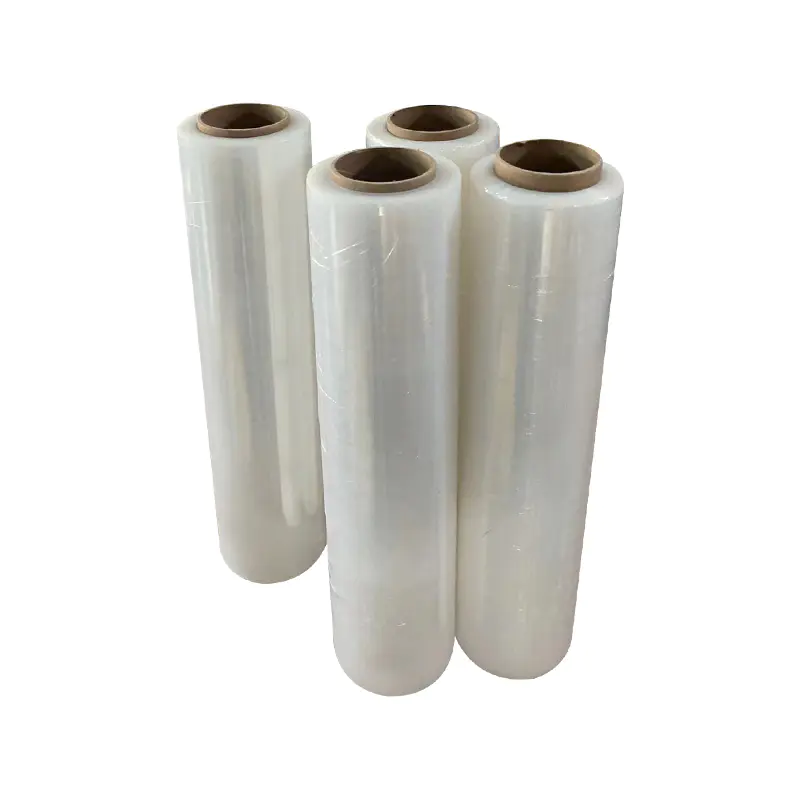Using Polyethylene/Polypropylene (PE/PP) co-extruded films as mulch films in agriculture offers several benefits that can significantly improve crop yield, soil health, and overall agricultural efficiency. Here’s a detailed look at the advantages:
Enhanced Moisture Retention
PE/PP co-extruded films are effective in retaining soil moisture by reducing water evaporation. This helps in maintaining consistent soil moisture levels, which is crucial for crop growth, especially in arid regions.
Benefit: Reduced irrigation requirements lead to water conservation and lower costs associated with water usage and energy for pumping.
Improved Temperature Regulation
These films help in moderating soil temperatures by reflecting or absorbing solar radiation, depending on their color and composition. For instance, black films can absorb heat and warm the soil, while reflective films can cool the soil by reflecting sunlight.
Benefit: Enhanced temperature control supports optimal root development and improves the growing conditions for crops, extending the growing season in cooler climates or protecting plants from excessive heat in warmer regions.
Weed Suppression
PE/PP co-extruded mulch films effectively block sunlight from reaching the soil, inhibiting weed growth by preventing germination. This reduces the need for chemical herbicides or manual weeding.
Benefit: Decreased weed competition leads to better nutrient availability for crops and reduces labor and chemical costs, promoting more sustainable agricultural practices.
Soil Health Preservation
By covering the soil, these films prevent soil erosion caused by wind and water. They also reduce compaction from rain impact and foot traffic, helping to maintain soil structure and health.
Benefit: Improved soil quality contributes to higher crop yields and sustainable land management practices.
Reduced Pest Infestation
Certain types of PE/PP co-extruded films can help deter pests. For example, reflective mulch can repel insects such as aphids and thrips by confusing them or making the environment less attractive.
Benefit: Lower pest populations reduce the need for chemical pesticides, leading to cost savings and less environmental impact.
Efficient Nutrient Management
Mulch films can minimize nutrient leaching by reducing runoff and evaporation, allowing fertilizers to remain available to plants for a longer period. They also help in the even distribution of water and nutrients.
Benefit: More efficient use of fertilizers leads to improved plant growth and reduced costs for fertilizer applications.

Enhanced Crop Quality
Using mulch films can result in cleaner produce by preventing soil from splashing onto the plants. This is especially beneficial for fruit and vegetable crops, as it reduces post-harvest cleaning and processing efforts.
Benefit: Higher quality and cleaner produce can fetch better market prices and reduce post-harvest labor costs.
Customization for Specific Crops
PE/PP co-extruded films can be customized in terms of thickness, color, and additives to meet the specific requirements of different crops. For example, films can be engineered for higher UV resistance or specific thermal properties.
Benefit: Tailoring mulch films to specific crops enhances their effectiveness and improves crop yields and quality.
Longevity and Durability
These films are durable and resistant to tearing, puncturing, and weathering, providing long-lasting coverage for multiple growing seasons.
Benefit: Reduced replacement costs and consistent performance over time contribute to lower overall production costs.
Environmental Impact and Sustainability
PE/PP co-extruded films can be designed for recycling or biodegradability, reducing the environmental impact compared to traditional plastic mulch films. Advances in material science have led to films that are easier to recycle or that break down more quickly in the environment.
Benefit: Using eco-friendly mulch films supports sustainable farming practices and reduces plastic waste.
Improved Yield and Productivity
Overall, the use of PE/PP co-extruded mulch films can lead to significant improvements in crop yield and productivity by optimizing growing conditions and reducing input costs.
Benefit: Higher yields and reduced input costs lead to better profitability for farmers and more efficient use of agricultural resources.
PE/PP co-extruded films provide numerous benefits when used as mulch films in agriculture, including enhanced moisture retention, improved soil temperature regulation, weed suppression, soil health preservation, and pest control. Their customization capabilities, durability, and potential for environmental sustainability make them a valuable tool for modern agriculture, leading to higher crop yields, better produce quality, and overall cost savings.



 English
English 中文简体
中文简体














